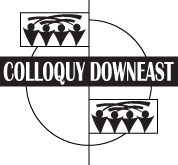The (not so cold) Cold War
| |||||||
This colloquy will address the premise that the Cold War was “not so cold.” In addition to the US-Soviet Union conflict, other countries were active participants in this war. The attempts of the US to resist communism “at any cost” has been the basis of many conflicts, the effects of which we are still living with today.
A close analysis of U.S. foreign policy and many related executive decisions since 1946 will show that the “Cold War” was not just about the U.S. versus the Soviet Union – democracy vs. communism. It was also about other countries that were active participants in the Cold War such as the former “colonial” powers, the U.K., France, and Spain, that could no longer continue to administer their former colonies. The U.S. was in a dominant position in the world from an economic and military point of view. The Soviet Union, much destroyed, was looking to reestablish itself as a world power as it was under the Tsars in the 1890’s.
For much of this period, the U.S. was preoccupied by the “domino theory” in many of its foreign policy decisions. A perceived victory or increase in communist/socialist influence anywhere was a loss for democracy and must be opposed at any cost. This led to many fine programs such as the Marshall Plan for European reconstruction and the similar MacArthur plan for Japan and other Asian countries. However, other less useful decisions, overly influenced by the “domino theory” were at the basis of the Korean War, Viet Nam, conflicts in Asia (Afghanistan), and of course the Middle East, which we are still living with today. The U.S. has not been at peace and has had troops stationed abroad ever since the end of WWII.
Courtenay Haight, a retired international banker and currently operator of Haight Farm in South Blue Hill, has a long held interest in history and international affairs.
Syllabus/Reading
Readings:
Required: Odd Arne Westad, The Cold War: a world history (2017).
Optional: There is a large body of writing about the “cold war” among which is:
John Lewis Gaddis, Cold War, a New History,(2005)
Samuel Huntington, The Clash of Civilizations (1996)
David McCollough, Truman, a biography (1992)
▼ Registration
Registration
Bookings are now closed (or the colloquy has been cancelled)
We aren't currently accepting bookings for The (not so cold) Cold War.
If you are trying to pay for a colloquy that you've already attended or have questions about refunds, please contact our Treasurer to work out the details.
▲ Hide...
